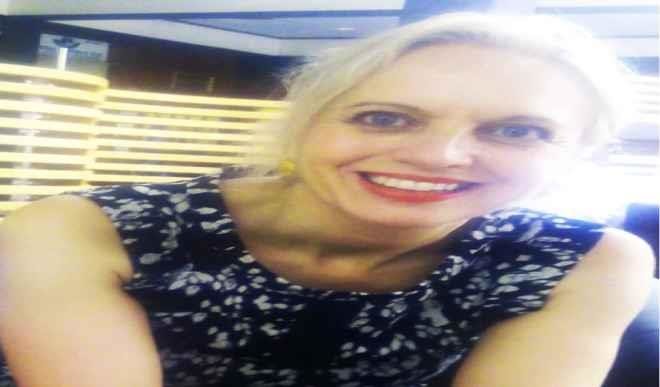
Daily Trust: What made your first time in Nigeria a standout experience?
Kirsty Brimelow: I first came to Nigeria in 2010 and I came with the UK Charity; we were focusing on human rights abuses of children who were stigmatized as witches and this was particularly in Akwa-Ibom where children were being abused, dumped on the streets or even killed because of a belief system that they were witches. This is my 17th visit to Nigeria since then.
A positive story on my very first visit was an incident that happened when I was in a taxi and I was going to somewhere in Abuja. I had a bag with me, which contained my passports, telephones and other personal belongings. I was rushing for the meeting, got out and left my bag in the taxi.
And my first thought was that ‘it’s gone!’ You won’t recover it in London and I thought Nigeria with its reputation for dishonesty and corruption, that the bag was gone. But what happened was that I decided to telephone my phone that was in the bag and it kept ringing but there was no response. Eventually somebody picked the phone up and it was the taxi driver. It happened somebody else has gotten into the cab and saw my bag and handed it over to the taxi driver who also did not take or keep it to himself, answered the phone and brought the bag to me. It was a really nice story and that was my first experience of Nigeria. I know it might not be typical, but it remains with me.
DT: On your first visit, what were your findings on the stigmatization of children accused of witchcraft in Akwa-Ibom?
Brimelow: It was a really big issue and what happened and was developed from there is now engaged at the United Nations level and last year I was in Geneva as the overall moderator where we had lawyers and activists from around the world where we have issues of witchcraft stigmatization.
What we found out was that there was a number of self-styled pastors who were telling their members that evils that befell them were because their children are witches. So, what we found out was that a lot of those who believed their children were witches got the information from their pastors.
Also, Nollywood was not helping with some of the films it was producing where children were being portrayed as witches. So, there was the need to educate the people that their children were not witches. Some of these children were being killed by people who see the killing as the only way to rid their families of the curse.
The other thing we discovered which was interesting was that it wasn’t only the uneducated people who subscribe to this belief system. Even some people who are highly educated have this belief system, perhaps the difference was that the educated ones may not carry out the belief system in a violent way as is most probable with the uneducated groups.
It was a big issue in Akwa-Ibom and many children were unable to go back to their homes. So, there was the issue of finding them a place of safety to stay.
DT: How did you come about the Nigerian name “Ayo”?
Brimelow: That was a name given to me by the former Chief Judge of Lagos. We had been carrying out trainings at the National Judicial Institute for judges and magistrates in child rights. It was at the end of one of those trainings that I was given the name “Ayo”, so I have a Yoruba name which I am happy with.
DT: Do you know the meaning of the name?
Brimelow: It is Ayobowale in full, which means ‘Joy has come home’. (Laughs) I do tell people that I have a Nigerian name and I am very proud of it. But people are now saying that I need an Ibo name and a Hausa name; I don’t know how many names I am allowed to have (Laughs).
DT: What Nigerian culture or custom have you become so familiar with over time?
Brimelow: I love the music; the afro-beats because I love dancing and I do a lot of works in Columbia where I am also learning Salsa dance. So, I love the music and the rhythm. I also like the food, I like spicy foods. I like bitter leaf soup and moi-moi. I always make sure I get some moi-moi and bitter leaf soup whenever I get the opportunity.
Culturally, I love the arts. I have so many beautiful paintings which I got from Nigeria that I have hung up in my home.
DT: What major memory do you always take back home?
Brimelow: My major memory is the warmth, kindness and hospitality of the people. I have always been extremely welcomed. I have also met a lot of people living in really harsh conditions but they are so kind and generous, and they keep a good sense of humour as well, which I love.
There is this impression of Nigerians as corrupt and untrustworthy, but that has not been my experience of people here. The impression is quite unfair; I’ll encourage people to visit Nigeria, it’s a great country.




